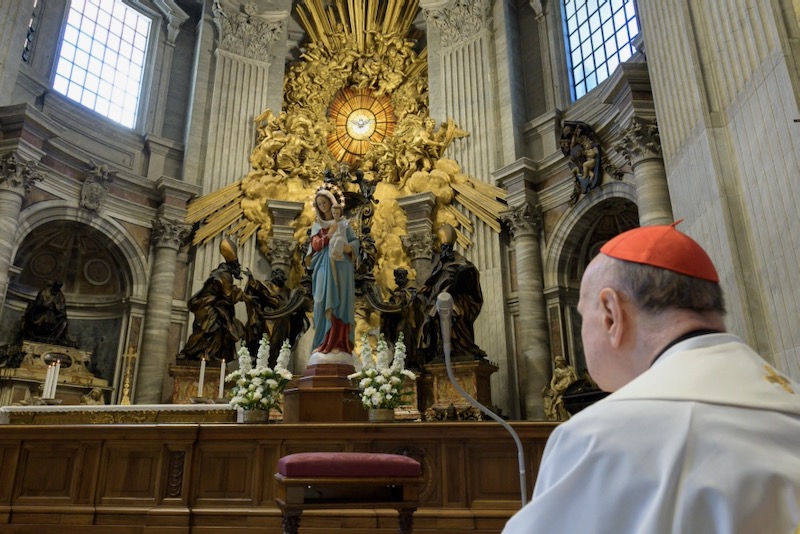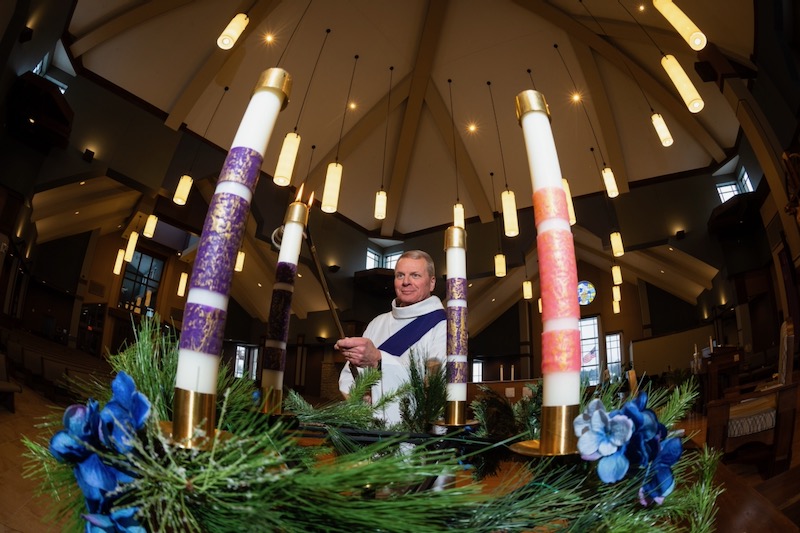Each year as Advent begins, I recall a candle-lit service I attended one year at York Minster to mark the start of this most evocative of liturgical seasons.
I was spending the weekend with Ann and Andy, old friends from university. Thanks to Andy being a verger at the Minster I got to sit with Ann in a prominent position for the service, and afterwards was invited to join the vergers and their partners for a drink in one of York’s many “olde worlde” pubs. They were a great bunch and it was a fascinating insight into what happens “behind the scenes” in a major cathedral.
A verger, by the way, is the person in the Anglican tradition who leads the celebrants to their position before and during a service. They hold aloft a virge which is a kind of long rod, and they walk slowly and solemnly, which means that the procession behind them also walks slowly and solemnly. The tradition, I believe, is from the Middle Ages when cathedrals would be filled with people milling around and the verger would almost literally have to barge their way through the throngs to get the celebrants to the altar. They would maybe even give people a little wack with the virge on the way!
Nowadays it’s purely ceremonial and it’s all done with almost military style precision. The vergers even have ear pieces so they can communicate with each other regarding exactly when to set off with the procession and when they need to “land” in a particular place.
There were lots of good stories from the vergers about occasions when things hadn’t gone quite according to plan. Andy told of how a verger once led the procession the wrong way at the beginning of a big important service. The other vergers were looking on helplessly as their colleague (perhaps overawed by the occasion) led the motley crew of choristers, priests and bishops first one way then another until everyone finally arrived at the altar.
I happened to be attending evensong in an Anglican cathedral when it began again following the lockdown restrictions. It was in the cathedral’s huge nave instead of the choir and the verger hesitated on the way in, and the dean and canons behind came to a temporary halt. I knew straight away what had happened and sent a message later on: “Tell him that the verger didn’t know where to go!”
I’m not always that keen on big solemn church services, where everything is perfectly choreographed but it’s almost too perfect to the extent that I feel like I can’t really be myself. One of the riches of my years at L’Arche was being alongside people who really knew how to be themselves (i.e. people with a learning disability), even in church settings and even if it may have invoked some feelings of discomfort in those around them. Back in the early 90’s I used to go on some Sundays with one of the learning-disabled women in my house to her local church and sometimes during the service my friend, who was very tactile, would get up and walk towards the vicar and give him a big hug. That memory was especially poignant at the time of Covid, when we were not permitted to share physical touch with one another.
Another woman who I accompanied occasionally to that same church would let out a big scream just as the gospel reading was coming to an end (i.e. just before the homily). I would have to take her into the hall for a cup of tea and she was happy to return for the remainder of the service. It meant I also got an early cup of tea and didn’t have to sit through a long sermon, so everyone was a winner!
When things don’t go exactly according to plan it makes it all a bit more human somehow. And who could have planned how and where, according to the Christian tradition, God chose to be revealed in the world: as a tiny baby born to unmarried parents in a smelly stable in a backwater town on the fringes of the Roman empire. The kingdom of God is indeed an upside-down kingdom.
And so if occasionally the verger leads the celebrants the wrong way, then in my view we’re all the richer and all the more human for it.



 Loading ...
Loading ...
What do you think?
You can post as a subscriber user ...
User comments (0)